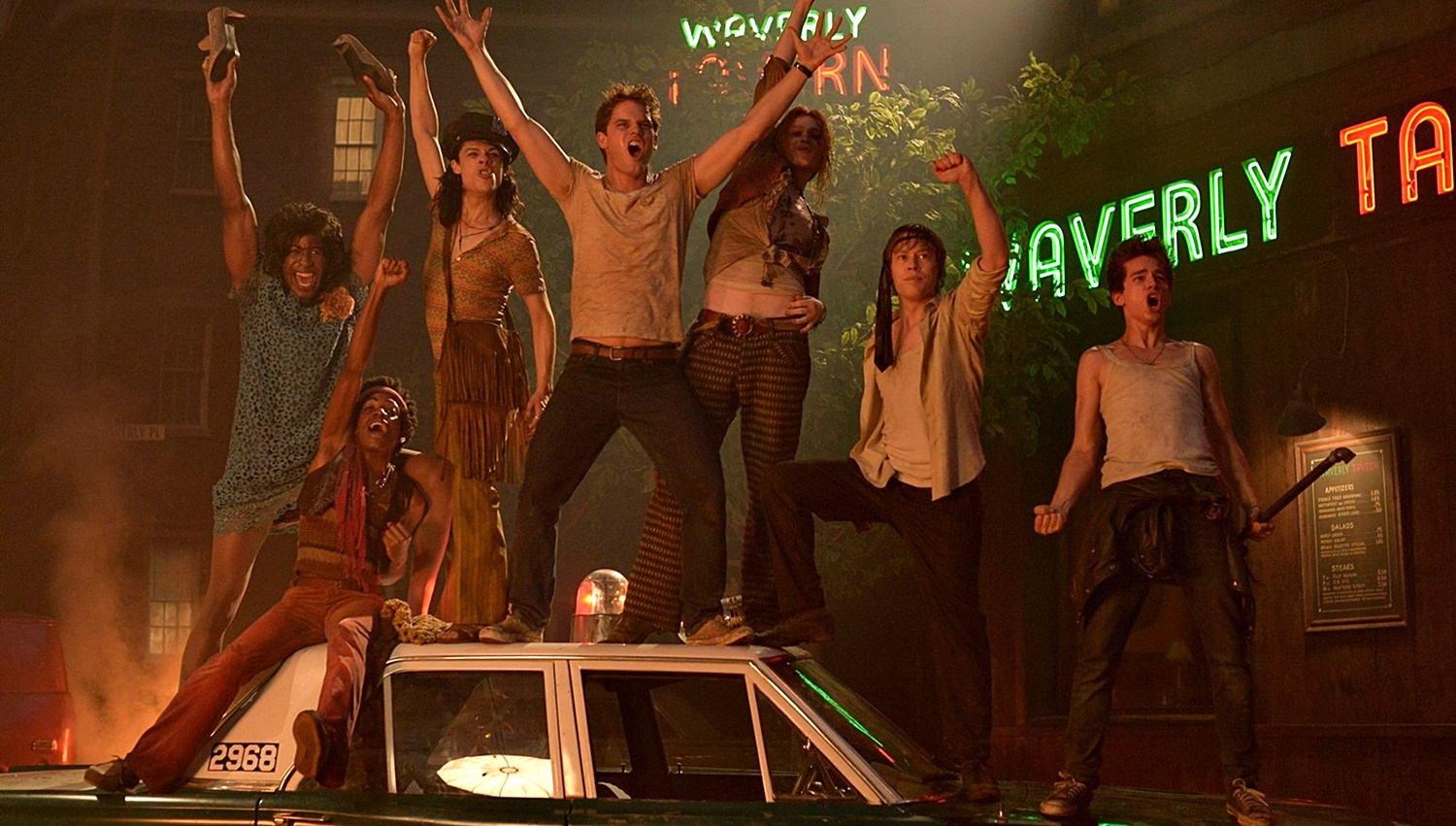
Stonewall
Dustin Chase
It’s hard to take serious a drama about gay rights from the director of blockbuster action films like “White House Down” or “The Day After Tomorrow.” Stonewall also marks the first time this director has taken on a project with a small budget and his first R rated film since “The Patriot” (2000). “Stonewall” has some powerful and emotional scenes, sprinkled throughout this fictionalized story of the actual historical event. Many gay rights advocates are saying the film does not give due credit to the pioneers of the LGBT equality movement.
In 1969, homosexuality was still classified as a mental illness and gays and lesbians were not permitted to hold government jobs. Police brutality towards open gays, lesbians and especially transgender persons was widespread. Danny (Irvine)barely steps off the bus in New York City from a small farm town in Indiana when he is almost instantly adopted by a group of street youth exiled from society and forced to prostitute themselves to survive. Danny learns how to survive in New York the hard way, but also catches the winds of change as the oppressed gay community begins protesting for their rights.
It isn’t that Stonewall is an altogether bad film, but it doesn’t feel honest or organic in nature.
“Stonewall” won’t break the box office like other Emmerich films. It likely won’t even be remembered at the end of the year when more serious and powerful LGBT films like “Freeheld,” “The Danish Girl” or “Carol” roll out. It isn’t that “Stonewall” is an altogether bad film, but it doesn’t feel honest or organic in nature. It comes on the heels of last year’s “Pride,” which focused on a more specific period in UKs history showcasing some of England’s best talent. The most heartfelt and emotional moments in “Stonewall” actually occur in scenes set in Indiana before the New York riots. If nothing else, “Stonewall” shows us how far laws and attitudes toward the LGBT community have changed since the 60’s.
The controversy over “Stonewall” began when test audiences noticed that in the film it was the fictional Danny that incites the riot in Manhattan outside the Stonewall Inn, rather than actual historical figures. Miss Major Griffin-Gracy, the drag queen who actually cast the first stone, is never mentioned anywhere in the film. “Stonewall’s” composite story mixes fictional characters into historical events. I question some of the script’s scene choices like spending time on an unimportant sexual relationship the lead character has with John Reyes Meyers character. “Stonewall” may just turn out to be an appetizer for the more important LBGT themed films coming this fall.
Final Thought
Emotional subject matter and important history in the hands of the wrong filmmakers.
